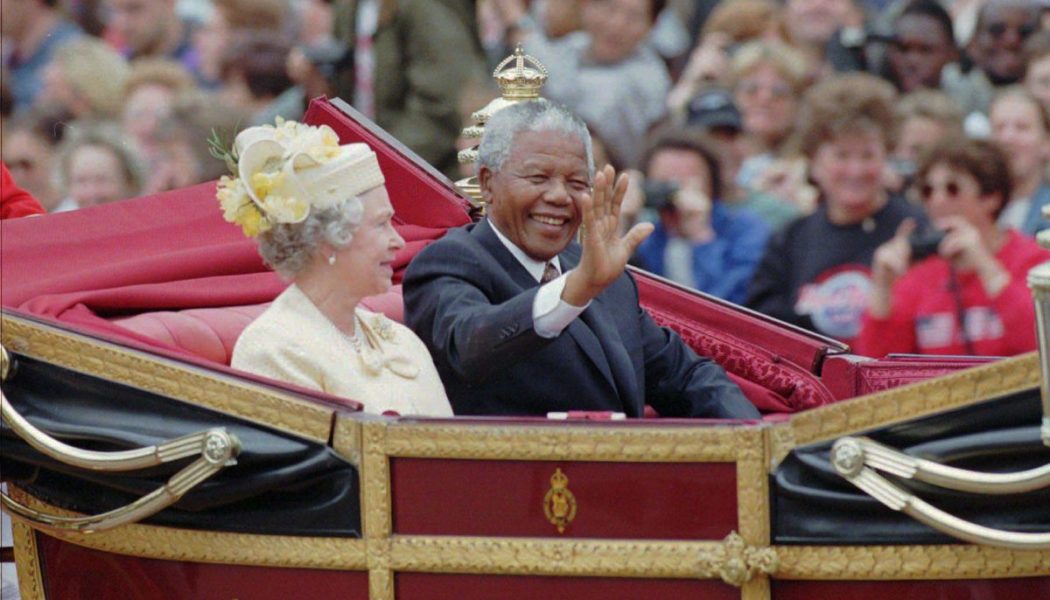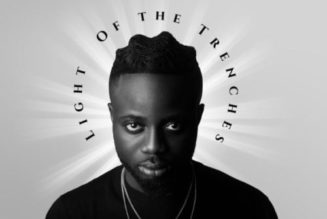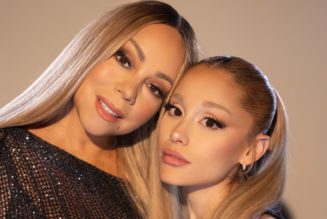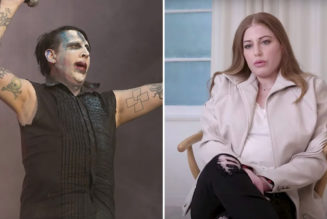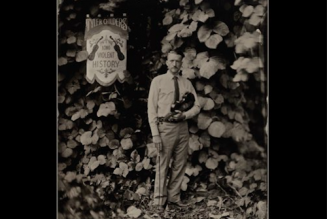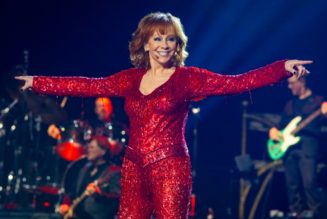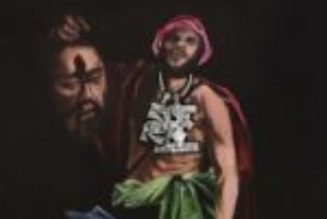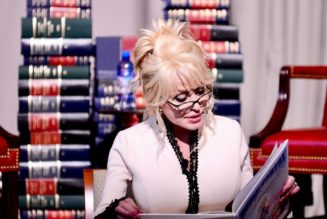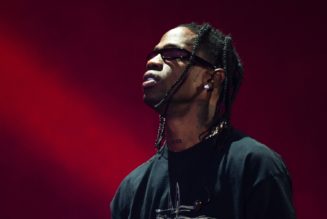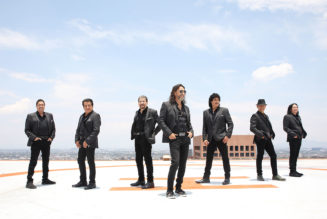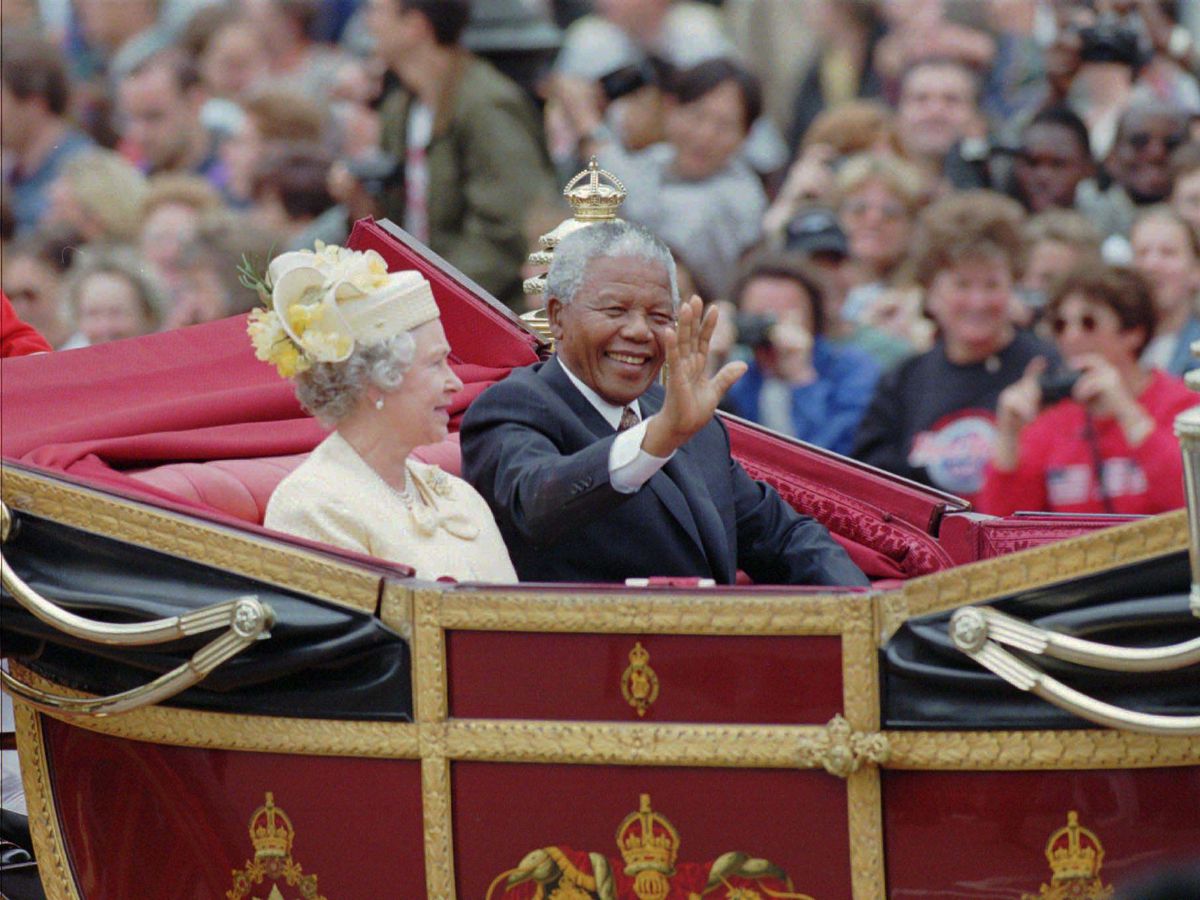
Tradition and convention was discarded as the charismatic leader, who was accompanied by his daughter Zenani, was welcomed as a political hero.
On the first day of the state visit, huge crowds turned out to watch Mr Mandela and The Queen ride in a carriage along the Mall from Buckingham Palace where he had attended a state banquet in his honour.
While planting a tree in St James’s Park, the South African Musical Village, dressed in leopard skins and colourful robes, started to perform and Mr Mandela could not resist having a dance to the music.
He told the crowds of people watching: “I wish I could come to Britain every week.”
His packed itinerary also included a working breakfast with financial and business leaders, a visit to the Bank of England and attending the United Kingdom-South Africa Sports Initiative reception.
Mr Mandela appealed to Britain’s business leaders to destroy the legacy of apartheid by improving trade links and boosting investment in his country.
He secured a pledge from the Prime Minister of £60 million of urgently-needed additional aid, primarily for education projects.
And he won a commitment from Mr Major to negotiate the best possible trade deal between the European Union and South Africa.
Mr Mandela addressed MPs in Westminster Hall where he was introduced by the Speaker of the House of Commons, Betty Boothroyd, who said: “You spent more than a third of your life in prison, though your spirit was freer there than those of your captors outside.”
He voiced his gratitude to Britain and the Queen for his ecstatic welcome, declaring: “I expected a warm reception but nothing like this. The hospitality from the Royal Family, the Government and the people is beyond words.
“I have always known that Her Majesty the Queen is a very gracious lady and that I would be treated with unprecedented warmth and hospitality, and that is what I have received.”
A concert was also held in his honour at the Royal Albert Hall where under the title “Two Nations Celebrate”, performers from both countries joined together for an evening of music to celebrate democracy in South Africa and the new directions of musicians there.
Legendary American producer, composer and arranger Quincy Jones gave his first UK stage appearance conducting Phil Collins’s 20-piece big band.
Also on the bill was Ladysmith Black Mambazo, the group who played on Paul Simon’s album Graceland; rap poet Mzwakhe Mbuli; Bayete, fronted by dynamic young singer Jabu Kanyile; dub poet Benjamin Zephaniah and African music legend Hugh Masekela.
In line with the evening’s celebration of diversity, 1,000 tickets were sold at low prices through voluntary organisations supporting disadvantaged people or those active in the anti-apartheid movement.
Mr Mandela and his daughter were said to be visibly enjoying the evening’s entertainment, swaying to the music from both cultures and bringing all of those with them in the Royal Box to their feet.
Hall staff commented on Nelson Mandela’s warmth, with him enthusiastically shaking hands with stewards as he made his way around the building.
Mr Mandela ended his state visit with an emotional thank-you to the people whose unswerving support helped bring multi-racial democracy to South Africa.
He headed to Brixton, South London and to Trafalgar Square – the centre of anti-apartheid demonstrations and “Free Mandela” vigils.
Large crowds gathered to catch a glimpse of one of the most charismatic world leaders of the age.
And Mr Mandela made clear his determination to voice his gratitude for their support.
“It must not be forgotten that the masses of the people in this country and elsewhere were in the forefront of the anti-apartheid struggle,” he said earlier.
Accompanied by the Prince of Wales, the 78-year-old South African president was greeted on the streets of Brixton – the scene of violent ethnic riots in the 1980s – by hundreds of schoolchildren, dancers and musicians.
After talks with young people, community leaders and officials from the Commission for Racial Equality to discuss equal opportunity initiatives, he walked through Brixton market chatting to the huge crowds.
There was also a symbolic procession across Trafalgar Square to South Africa House. As apartheid South Africa’s London Embassy, the building was long the symbol of oppression but now houses “The Rainbow Nation’s” High Commission.
Tens of thousands of people cheered as he stepped on to the balcony of South Africa House.
The final episode of the game show Going For Gold was shown on BBC1.
Hosted by Henry Kelly, it usually aired after the lunchtime broadcast of Australian soap opera Neighbours.
It featured contestants from different European countries who competed against each other to answer questions, all in English, to win a prize.
Unsuccessful contestants from Monday’s show would return on Tuesday, and so on throughout the week. The show’s theme tune was composed by composer Hans Zimmer.
Going For Gold made a brief return to Channel 5 in 2008 when it was hosted by John Suchet.
In 1996, the average house cost £52,555 – the equivalent of £94,599 in 2023.
Workers could expect an average salary of £13,302, which is £23,944 in today’s money.
A litre of fuel for your car cost 60p while the average car was £11,400, which is the equivalent of £20,520 now. The average price of a loaf of bread was 75p, a 1.5kg sack of flour was 58p, a kg bag of sugar was 69p and a 400g block of cheese was £1.83.
Killing Me Softly
Born Slippy
Three Lions
Mysterious Girl
Because You Loved Me
In Too Deep
You’re Makin Me High
Keep On Jumpin’
Don’t Stop Movin’
Nice Guy Eddie
